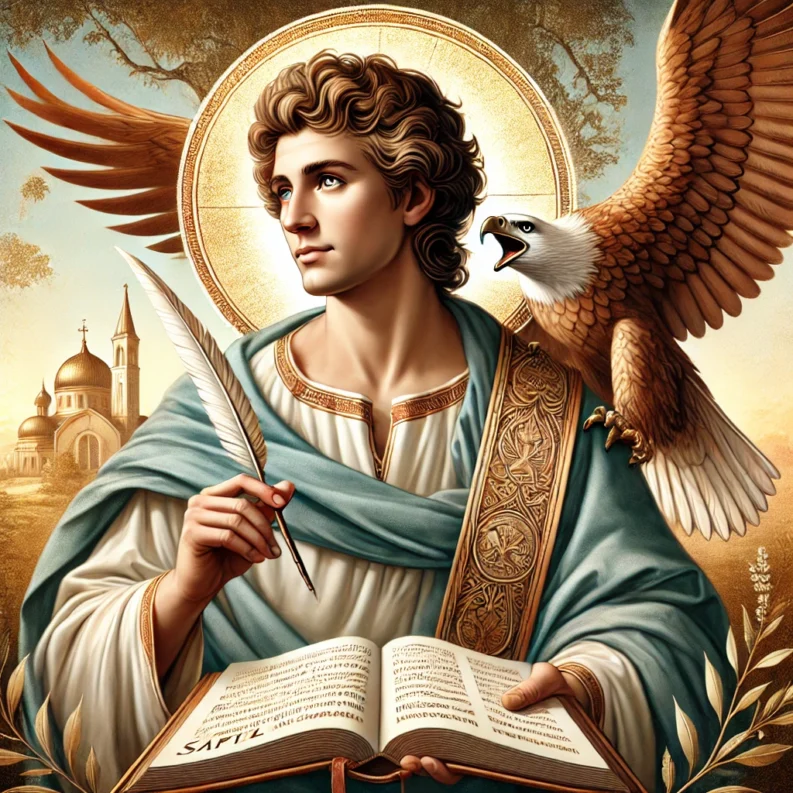St. John the Evangelist, one of the twelve apostles and the traditionally recognized author of the Gospel of John, the Epistles of John, and the Book of Revelation, is a figure deeply rooted in Christian theology and symbolism. Known as “the Beloved Disciple,” his writings emphasize themes of love, light, and eternal truth, making him a profound source of inspiration for both religious and philosophical traditions. For Freemasons, St. John the Evangelist represents the spiritual and contemplative dimensions of the craft, complementing the active, moral focus of St. John the Baptist.
The Teachings of St. John the Evangelist
St. John’s writings are infused with poetic and philosophical language that resonates with Masonic principles. One of the most famous passages from his Gospel, John 1:1–5, describes the Word (Logos) as the source of all creation:
“In the beginning was the Word, and the Word was with God, and the Word was God. He was in the beginning with God. All things were made through Him, and without Him, nothing was made that was made. In Him was life, and the life was the light of men.”
This metaphor of light as life aligns closely with Masonic symbolism, where light represents knowledge, truth, and spiritual awakening. Similarly, St. John’s emphasis on love as the cornerstone of community and faith is evident in passages such as 1 John 4:12:
“If we love one another, God lives in us, and His love is perfected in us.”
This focus on building a community through love parallels Freemasonry’s goals of constructing a metaphorical temple of humanity, where individual virtues contribute to a harmonious whole.
St. John the Evangelist and Freemasonry
In Masonic tradition, St. John the Evangelist is venerated as a patron saint, symbolizing introspection, spiritual wisdom, and the quest for enlightenment. Lodges dedicated to him are often called “Lodges of St. John,” emphasizing their dedication to moral and spiritual growth. He complements the figure of St. John the Baptist, representing the balance between action and contemplation—a duality central to Masonic philosophy.
The Feast of St. John the Evangelist
Freemasons celebrate the Feast of St. John the Evangelist on December 27, one of two major feast days in the Masonic calendar. The other is the Feast of St. John the Baptist on June 24. These dates align with the solstices, ancient times of renewal and balance, which are reflected in Masonic teachings about harmony and progression.
The Feast of St. John the Evangelist is a time for Masons to come together in fellowship, reflect on the spiritual lessons of the craft, and recommit to its principles of truth, brotherly love, and charity. It highlights the contemplative and philosophical aspects of Freemasonry, encouraging members to seek knowledge and build stronger bonds within their fraternity.
The Legacy of St. John the Evangelist
St. John the Evangelist’s legacy as a writer and spiritual teacher continues to inspire Masons today. His focus on light and love as transformative forces speaks to the heart of Masonic philosophy, where the pursuit of enlightenment and the building of a better world are paramount. Through his life and teachings, he offers a timeless example of how wisdom and compassion can shape not only individuals but also communities, making him a fitting patron for the Masonic journey.
As Masons celebrate the Feast of St. John, they are reminded of their commitment to building a temple of virtue, founded on the eternal principles of love, truth, and light—a legacy that resonates with the teachings of St. John the Evangelist.


